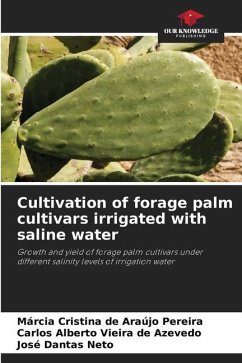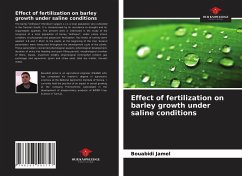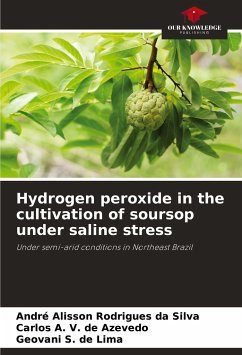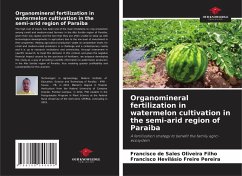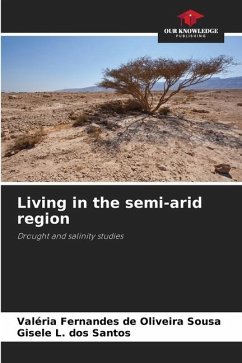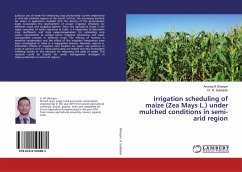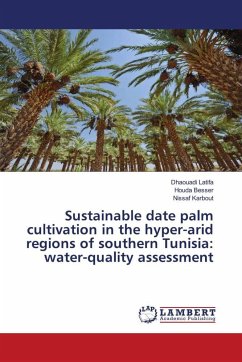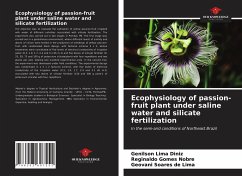
Growing fodder palm in the semi-arid region under saline conditions
Agronomic performance of forage palm under irrigation rates and levels of irrigation water salinity
Versandkostenfrei!
Versandfertig in 6-10 Tagen
40,99 €
inkl. MwSt.

PAYBACK Punkte
20 °P sammeln!
Although the forage palm is adapted to the Brazilian semi-arid region, it can be influenced by the soil and climate conditions in this region. The aim of this study was to evaluate the effect of different irrigation rates and levels of water salinity on the cultivation of the Mexican Elephant Ear species. The research was conducted in open-air pots at the Federal University of Campina Grande between September 2017 and December 2018. The experimental design was randomized blocks in a 4 x 4 factorial scheme, with 4 replications. The factors consisted of four irrigation rates (25, 50, 75 and 100%...
Although the forage palm is adapted to the Brazilian semi-arid region, it can be influenced by the soil and climate conditions in this region. The aim of this study was to evaluate the effect of different irrigation rates and levels of water salinity on the cultivation of the Mexican Elephant Ear species. The research was conducted in open-air pots at the Federal University of Campina Grande between September 2017 and December 2018. The experimental design was randomized blocks in a 4 x 4 factorial scheme, with 4 replications. The factors consisted of four irrigation rates (25, 50, 75 and 100%) as a function of the total water capacity in the soil and four levels of electrical conductivity of the water: 0.60, 3.00, 5.40 and 7.80 dS m-1. Reference evapotranspiration (ET0), actual evapotranspiration (ETr) and the crop coefficient (kc) were determined. Applying irrigation rates in the 320.00 to 460.00 mm range favors the ETr of fodder palm and even under saline conditions the plant maintains its evapotranspirometric demand. The kc varied between 0.68 and 0.85. The highest production was achieved with a salinity threshold of 2.23 and a water table of 354 mm.





